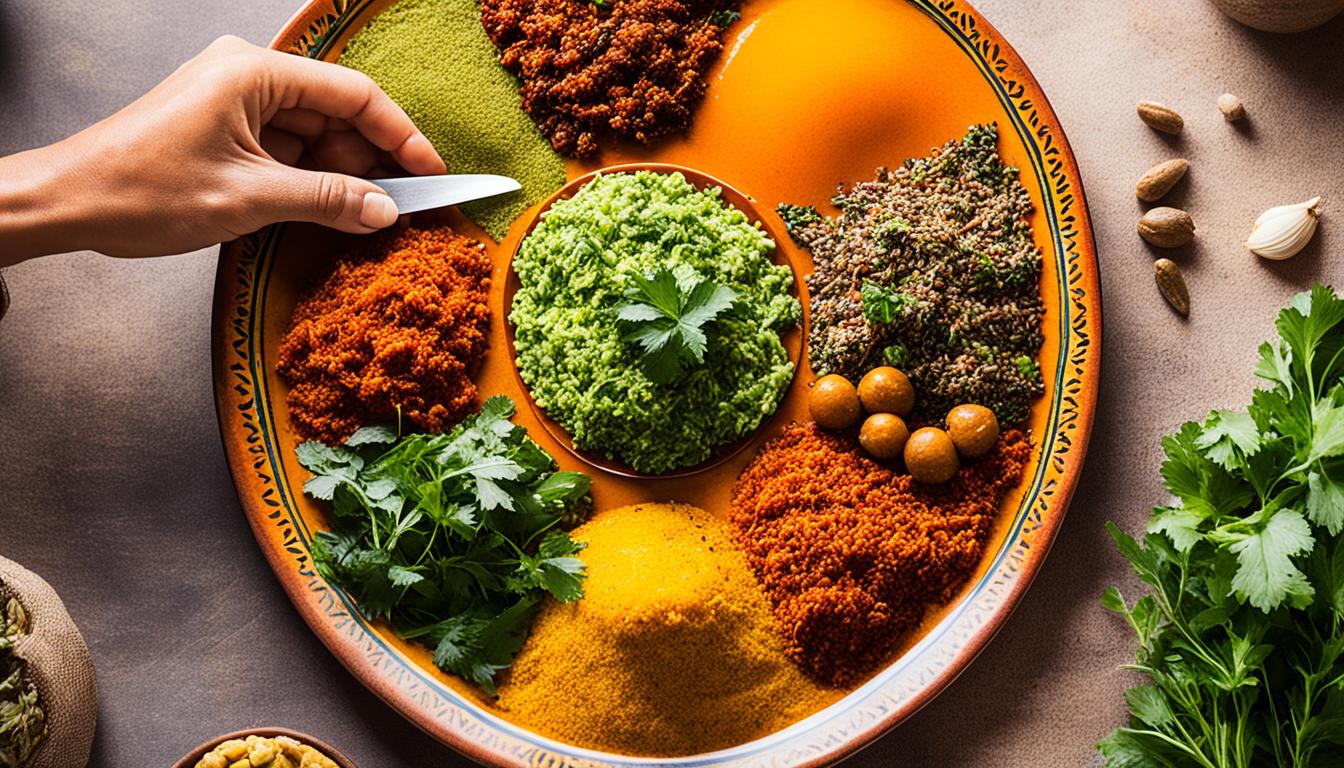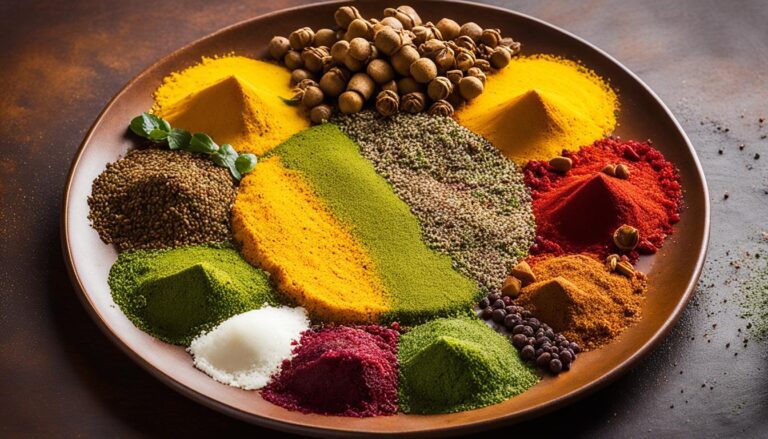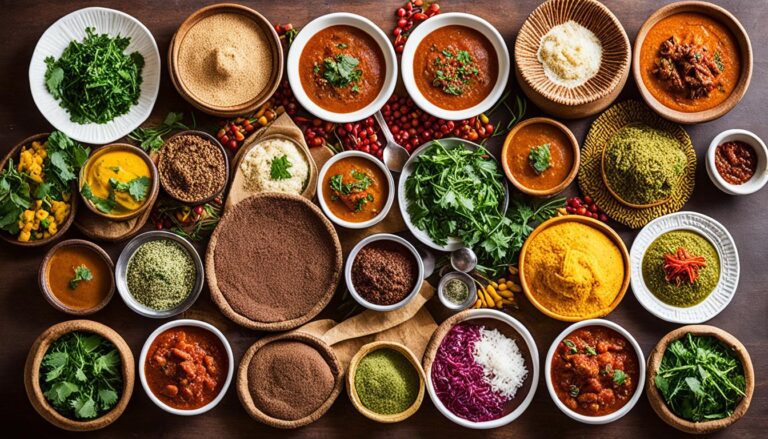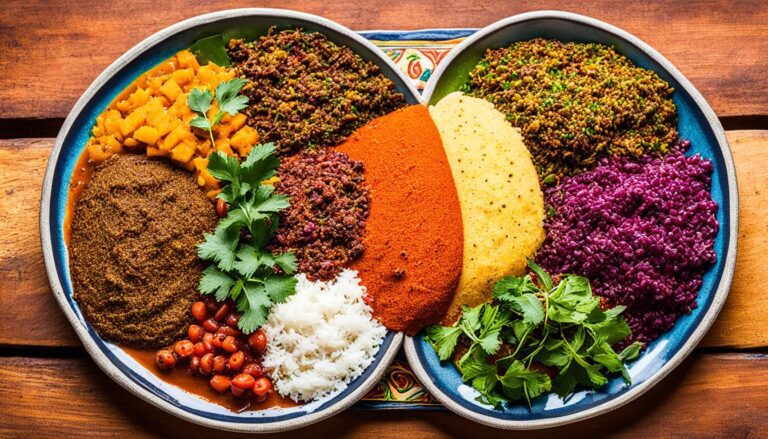Is Ethiopian Food Healthy for Pregnancy?
When it comes to pregnancy, maintaining a healthy diet is crucial for the well-being of both the expectant mother and the growing baby. While there are numerous dietary options available, have you ever considered incorporating Ethiopian food into your pregnancy diet? Surprisingly, Ethiopian cuisine can offer a plethora of nutritional benefits that are essential for a healthy pregnancy.
From nutrient-rich whole grains to an array of colorful vegetables and aromatic spices, Ethiopian dishes are a treasure trove of goodness. However, it’s important to understand the specifics and key considerations when it comes to enjoying Ethiopian food during pregnancy. In this article, we will explore the nutritional benefits of Ethiopian cuisine, address potential concerns, recommend specific dishes, and provide insights on incorporating Ethiopian food into a balanced pregnancy diet.
Key Takeaways:
- Ethiopian food offers a variety of nutritional benefits for pregnant women.
- Specific considerations need to be taken into account when consuming Ethiopian food during pregnancy.
- Traditional Ethiopian dishes, such as injera, lentil stews, and vegetable dishes, are ideal for pregnant women.
- Ethiopian food can be easily incorporated into a well-rounded pregnancy diet with proper planning.
- Enjoy the flavors of Ethiopian cuisine while supporting a healthy pregnancy journey.
Nutritional Benefits of Ethiopian Cuisine
When it comes to nourishing your body during pregnancy, Ethiopian cuisine offers a variety of culinary delights that are both flavorful and packed with essential nutrients. The traditional Ethiopian diet is characterized by its use of whole grains, legumes, vegetables, and spices, which provide numerous health benefits for expectant mothers.
Whole grains such as teff, barley, and sorghum are common staples in Ethiopian dishes. These grains are rich in fiber, B vitamins, and minerals like iron and magnesium. They provide sustained energy and aid in digestion, helping to prevent common pregnancy discomforts like constipation.
Legumes such as lentils, chickpeas, and split peas are a vital source of protein, which is crucial for the growth and development of your baby. They also contain fiber, iron, and folate, which play key roles in preventing birth defects and promoting a healthy pregnancy.
The abundance of vegetables in Ethiopian cuisine ensures a vibrant and nutrient-rich diet. From collard greens and cabbage to carrots and potatoes, Ethiopian dishes are bursting with vitamins, minerals, and antioxidants. These colorful vegetables provide essential nutrients like vitamin C, vitamin A, and potassium, which support your immune system, vision, and overall well-being during pregnancy.
Spices
Ethiopian cuisine is famous for its distinctive blend of spices, which not only add incredible flavor to dishes but also offer various health benefits. Spices like turmeric, cumin, and ginger are known for their anti-inflammatory properties, while fenugreek and cinnamon can help regulate blood sugar levels. Incorporating these spices into your meals can contribute to a healthy pregnancy.
By enjoying a diverse range of nutrient-dense foods, Ethiopian cuisine can provide the essential vitamins, minerals, and fiber necessary for a healthy pregnancy. The combination of whole grains, legumes, vegetables, and spices not only satisfies your taste buds but also supports your well-being and the development of your baby.
Key Considerations for Eating Ethiopian Food While Pregnant
When it comes to enjoying Ethiopian food during pregnancy, there are a few key considerations that pregnant women should keep in mind. These considerations revolve around food safety, spice levels, and potential allergens, prioritizing the well-being and enjoyment of expectant mothers.
Food safety is paramount during pregnancy, and it’s crucial to ensure that the Ethiopian dishes you consume are prepared and stored properly. Make sure you choose reputable restaurants or prepare meals at home using fresh ingredients and clean cooking practices.
The Importance of Spice Levels
Spices play an essential role in Ethiopian cuisine, but it’s important to be mindful of spice levels while pregnant. Some spices can cause heartburn or indigestion, so consider opting for milder versions of your favorite dishes or requesting reduced spice levels when dining out.
Watch Out for Potential Allergens
While Ethiopian food is generally known for its diverse and flavorful vegetarian options, it’s important to be mindful of potential allergens. Certain dishes may contain ingredients like peanuts, sesame seeds, or lentils, which can trigger allergies in some individuals. If you have any known food allergies or sensitivities, be sure to inquire about the ingredients in your chosen dishes or select alternatives that are safe for you.
By keeping these key considerations in mind, pregnant women can safely and comfortably enjoy the delicious flavors of Ethiopian cuisine. Whether savoring injera, lentil stews, or vegetable dishes, expectant mothers can indulge in the nutritional benefits and vibrant tastes of Ethiopian food without worrying about compromising their health or the health of their baby.

Recommended Ethiopian Dishes for Pregnant Women
When it comes to enjoying flavorful and nutritious meals during pregnancy, Ethiopian cuisine offers a delightful array of dishes. These traditional Ethiopian delicacies not only satisfy your cravings but also provide essential nutrients to support a healthy pregnancy. Let’s explore some recommended Ethiopian dishes that are perfect for pregnant women:
Injera
Injera is a staple in Ethiopian cuisine and a must-try for expectant mothers. This spongy, sourdough flatbread is made from teff flour and is rich in iron, calcium, and dietary fiber. It serves as an excellent source of energy and pairs well with various Ethiopian stews and dishes.
Lentil Stews
Ethiopian lentil stews, such as misir wot or yemisir kik wat, are hearty and protein-packed options for pregnant women. Lentils are an excellent source of plant-based protein, essential for proper growth and development. These flavorful stews are also seasoned with spices like berbere, which adds a unique taste and boosts metabolism.
Vegetable Dishes
Vegetable dishes like gomen (collard greens) and tikil gomen (cabbage) are nutritious additions to any pregnancy diet. Packed with vitamins, minerals, and antioxidants, these dishes offer a healthy dose of folate, iron, and vitamin C. Enjoy them alongside injera for a well-rounded meal.
By incorporating these recommended Ethiopian dishes into your pregnancy diet, you can indulge in a flavorful culinary experience while nourishing your body and growing baby. Remember to consult with your healthcare provider to ensure these dishes align with your specific dietary needs and restrictions.
Incorporating Ethiopian Food into a Balanced Pregnancy Diet
When it comes to maintaining a balanced pregnancy diet, incorporating diverse and nutritious foods is essential. Ethiopian cuisine offers a unique and flavorful addition to your meal plan, providing a range of nutrients that support a healthy pregnancy. Here are some tips on how to incorporate Ethiopian food into a well-rounded diet during this special time:
1. Mindful Portion Sizes
As with any cuisine, portion control is crucial for maintaining a balanced diet during pregnancy. While Ethiopian dishes can be hearty, it’s important to practice moderation and be mindful of your portion sizes. Enjoying a variety of dishes in smaller quantities ensures you receive a diverse range of nutrients without overconsuming.
2. Meal Planning
Planning your meals in advance can help you incorporate Ethiopian food into your pregnancy diet more easily. Consider meal prepping traditional Ethiopian dishes such as lentil stews or vegetable stir-fries, which can be stored in the refrigerator or freezer for convenient access throughout the week. This way, you can ensure you have a supply of nutritious Ethiopian meals readily available.
3. Balancing Nutrients
While Ethiopian cuisine offers a rich array of flavors, it’s important to combine these dishes with other food groups to obtain a balanced intake of nutrients. Pairing Ethiopian dishes with lean proteins, whole grains, and a variety of fruits and vegetables can help you meet your nutritional needs during pregnancy. You can incorporate injera, a traditional Ethiopian flatbread, alongside grilled chicken and a side of steamed vegetables for a well-rounded meal.
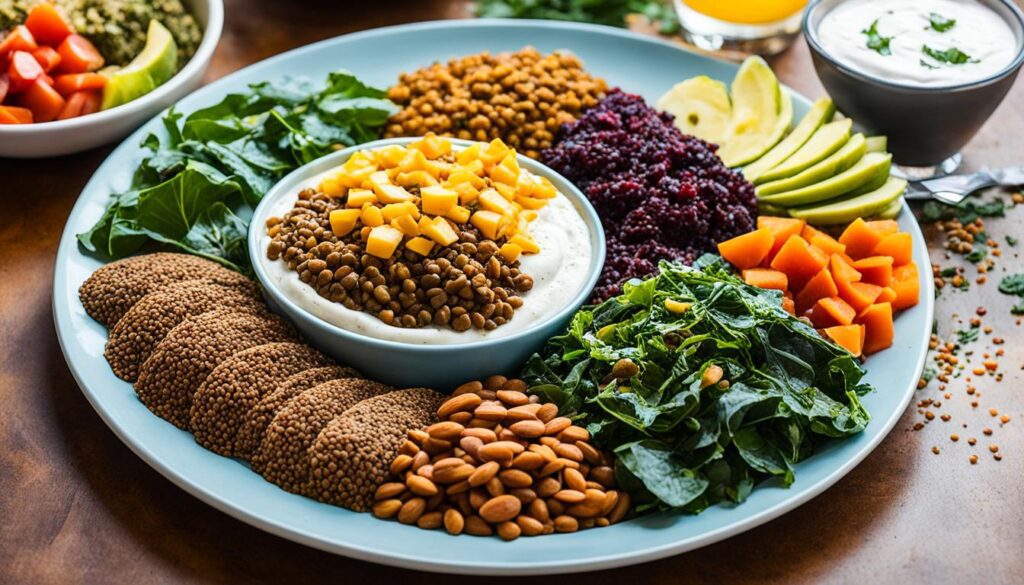
Including Ethiopian food in your pregnancy diet allows you to savor the unique flavors and reap the nutritional benefits of this rich cuisine. With mindful portion sizes, meal planning, and a focus on balanced nutrition, you can enjoy the delights of Ethiopian food while ensuring a healthy and well-rounded pregnancy diet.
Conclusion
Throughout this article, we have explored the topic of Ethiopian food and its suitability for pregnant women. From our analysis, it is evident that Ethiopian cuisine offers numerous nutritional benefits that can support a healthy pregnancy.
The abundance of whole grains, legumes, vegetables, and spices found in Ethiopian dishes provides essential vitamins, minerals, and fiber necessary for expectant mothers. These nutritious elements contribute to overall maternal well-being and the development of the growing baby.
While enjoying Ethiopian food during pregnancy, it is important to consider food safety, spice levels, and potential allergens. By being mindful of these factors, expectant mothers can still savor the unique flavors and rich spices of Ethiopian cuisine without compromising their health or the health of their baby.
Incorporating Ethiopian food into a balanced pregnancy diet is highly encouraged. Dishes such as injera, lentil stews, and vegetable dishes are not only delicious but also offer a wide array of nutrients. Combined with other food groups, Ethiopian food can contribute to a well-rounded and nutritious meal plan for pregnant women.
In conclusion, Ethiopian food can be a healthy and enjoyable choice for expectant mothers. With its rich flavors, diverse ingredients, and nutritional benefits, Ethiopian cuisine provides a unique dining experience that supports the well-being of both the mother and the baby.
Note: The first letter of each paragraph is capitalized but
tag is not put in the beginning of each sentence for markdown formatting.

